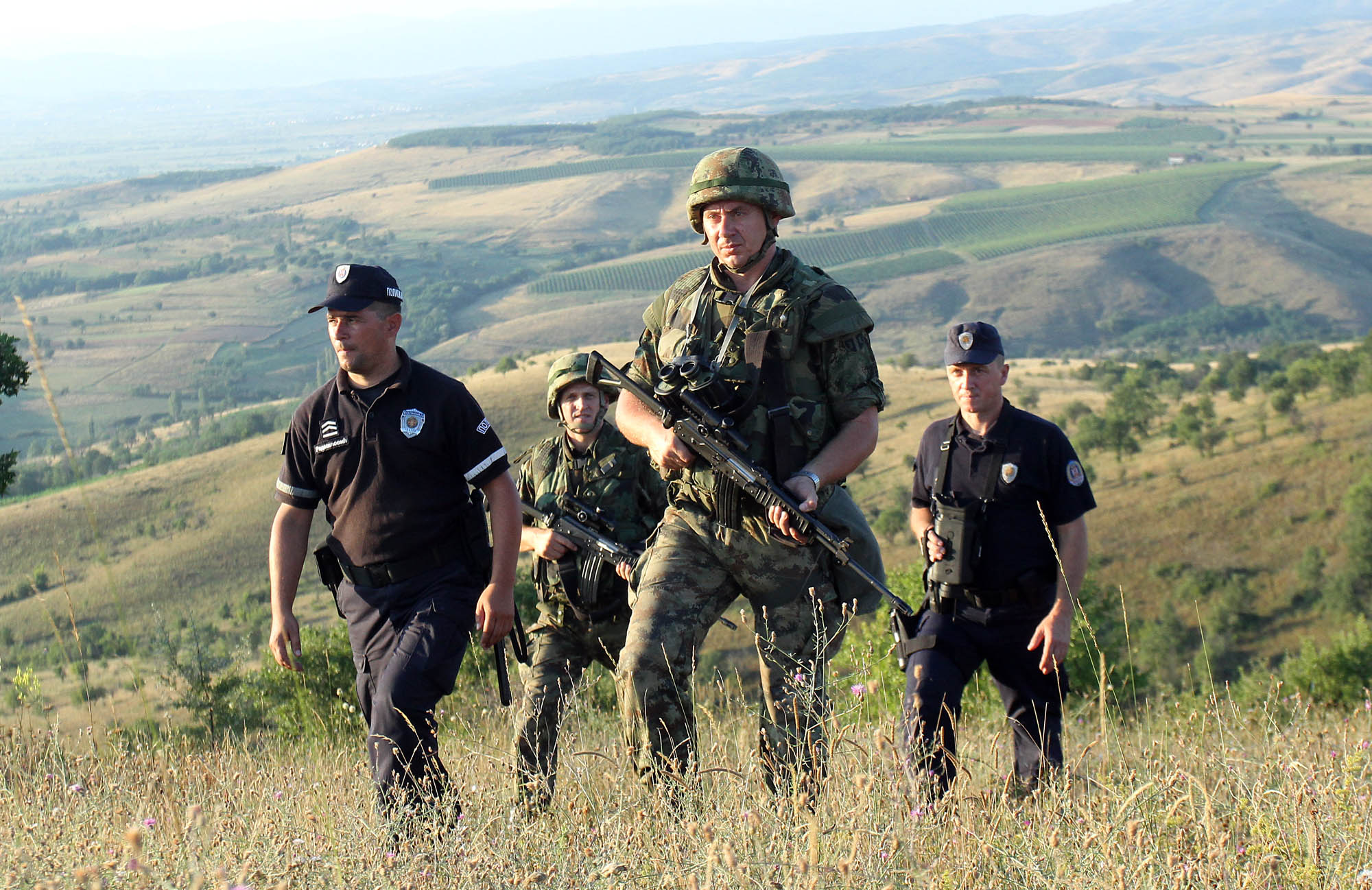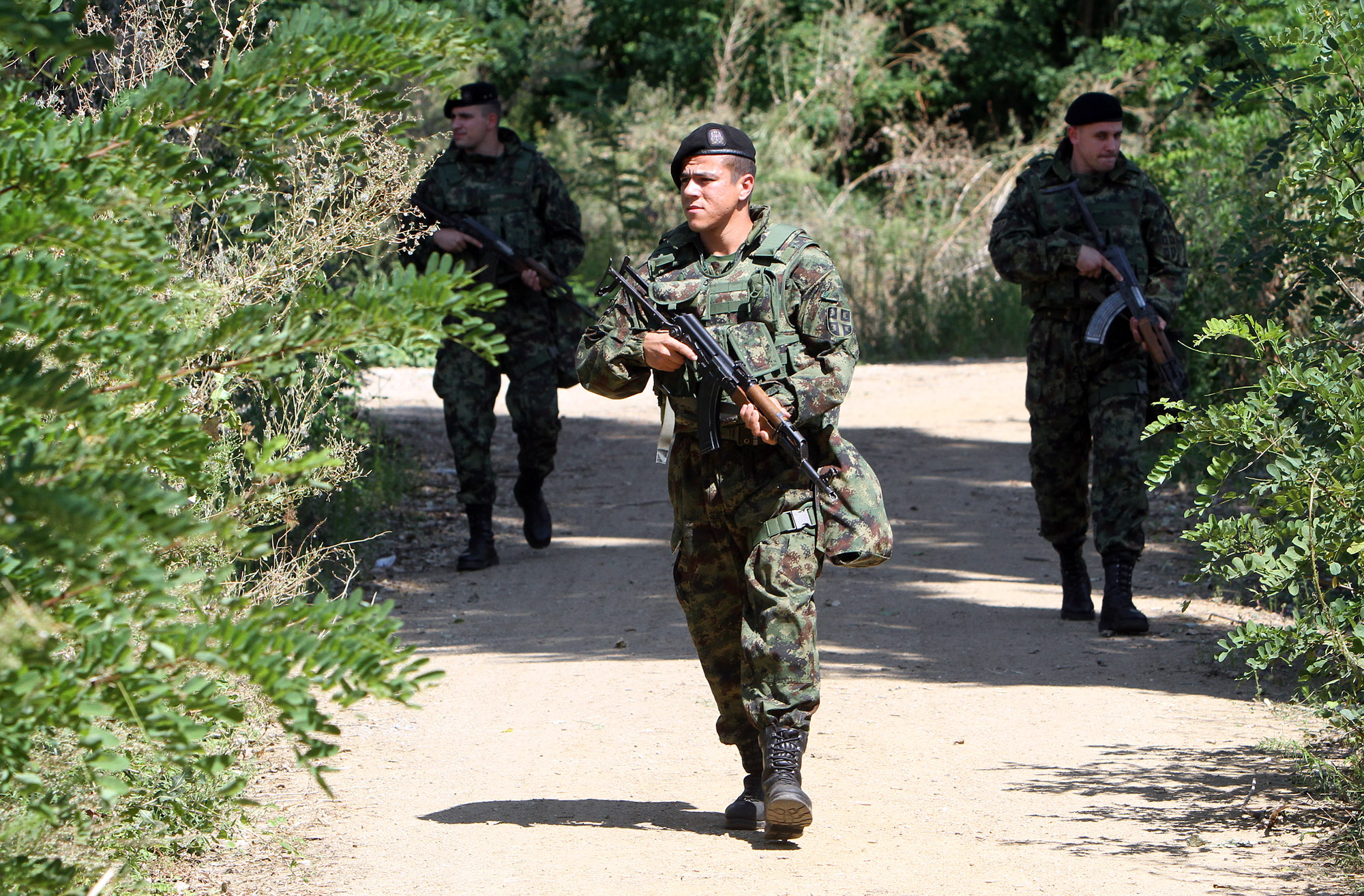02.04.2018.
Termination of the Engagement of Joint Forces of the Serbian Armed Forces and the Ministry of Interior
After more than 20 months of engagement, the Joint Forces of the Serbian Armed Forces and Ministry of Interior transferred the responsibility of securing the state border towards Bulgaria and Macedonia to the Ministry of Interior.
 The Joint Forces for securing the state border were established upon Decision of the Government of Serbia of 19th July 2016 and until the present day, they prevented illegal crossing of the state border of more than 23,000 illegal migrants. In the same period, 154 attempts of smuggling 2177 individuals were prevented. Also, 172 persons were brought to the bodies of justice, majority of them being from Serbia, 134 of them, then 17 nationals of Bulgaria and others from Pakistan, Afghanistan, Iraq, Netherlands, Austria, Moldova and Bosnia and Herzegovina. Competent authorities put 122 persons in custody lasting up to 30 days, and criminal information in regular procedure was filed against 39 individuals and they are on pretrial release. Two minors were charged for misdemeanour and for nine persons the charges were dropped.
The Joint Forces for securing the state border were established upon Decision of the Government of Serbia of 19th July 2016 and until the present day, they prevented illegal crossing of the state border of more than 23,000 illegal migrants. In the same period, 154 attempts of smuggling 2177 individuals were prevented. Also, 172 persons were brought to the bodies of justice, majority of them being from Serbia, 134 of them, then 17 nationals of Bulgaria and others from Pakistan, Afghanistan, Iraq, Netherlands, Austria, Moldova and Bosnia and Herzegovina. Competent authorities put 122 persons in custody lasting up to 30 days, and criminal information in regular procedure was filed against 39 individuals and they are on pretrial release. Two minors were charged for misdemeanour and for nine persons the charges were dropped.The tasks charged by the Government of Serbia that included prevention of illegal crossings of the migrants to the territory of the Republic of Serbia, prevention of smuggling people over the state border and arresting persons dealing with those activities, were successfully executed by the Joint Forces under the command of five commanders authorised by the President of the Republic of Serbia. The commanders of the Joint Forces for securing the state border from their establishment until today were: Major General Želimir Glišović, Brigadier General Mile Jelić, Brigadier General Dejan Janković, Colonel Vladeta Baltić and Colonel Saša Nedeljković.
 The Joint Forces consisted of members of the Serbian Armed Forces and the Ministry of Interior. Predominantly, the units engaged from the armed forces were the units of the Military Police and Infantry units, while from the MI, the engaged members came from Border Police Department, Gendarmerie, Police units for interventions and other. During the engagement of the Joint Forces, the assistance in securing the state border was also rendered by the European Union by engaging its police officials from Czech Republic, Slovakia, Slovenia, France, Hungary and Austria and the Austrian Armed Forces donated 30 night vision binoculars for the Joint Forces for securing the state border.
The Joint Forces consisted of members of the Serbian Armed Forces and the Ministry of Interior. Predominantly, the units engaged from the armed forces were the units of the Military Police and Infantry units, while from the MI, the engaged members came from Border Police Department, Gendarmerie, Police units for interventions and other. During the engagement of the Joint Forces, the assistance in securing the state border was also rendered by the European Union by engaging its police officials from Czech Republic, Slovakia, Slovenia, France, Hungary and Austria and the Austrian Armed Forces donated 30 night vision binoculars for the Joint Forces for securing the state border.The Joint Forces performed the tasks by the engagement of their bodies, primarily on patrols, ambushes and observation posts, in the segment of the state border towards the Republic of Bulgaria and Macedonia. In a smaller part of the engagement, while the real need existed for that, the forces secured a part of the border to the Republic of Montenegro as well. Apart from such linear method of securing the border, the Joint Forces engaged their bodies in depth of the territory, primarily by setting up check points and by conducting different controls of communications in depth of the territory.
By combining the linear and in depth methods of securing, exceptional results were achieved from the very beginning, which were reflected first of all in the number of prevented attempts at illegal crossings and in the number of the suspects that were taken to justice.

